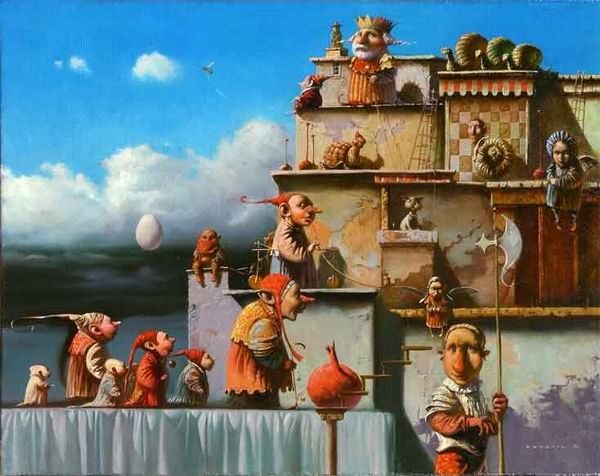
Was Jane Austen More Strategy-Wise Than Majority of Chess Players?
Strategy Forgotten
Lack of strategy is a common downfall everywhere. There is a mantra even Grandmasters of chess adhere to that chess is 99% tactics. Well, it is true, but tactics only manifest the building blocks of strategy. In reality, in chess, strategy is rarely used below the master level.
Now, is it really possible that the heroines from Jane Austen’s romantic novels were superior to an average chess player when it comes to using strategy? If so, it would be a shame for chess players and chess itself, as it is being considered as the ultimate game of strategy.
The game of chess is game of strategy; of course, you have many opportunities to show your tactical skills, but foremost, it’s about strategy.--Kasparov
Strategic thinking should be part of everyday life if we want to achieve success. Otherwise, we are moving on a random course without direction and control allowing all kinds of forces to push, pull and twist us. With a sound strategy in place, however, we can rein these forces in to lead us where we want to go.
Game Theory
Strategic interaction takes place not only in games like chess, but also in conflicts among nations, rivalries among sports teams, and competition among firms – anywhere where groups of people interact. We are all players, be it customers, suppliers, rivals, or allies. Each player in the game brings some added value to it. The point is to find ways to raise the added value for you and your team, while doing everything possible to lower the added value of the competing side. For example, in chess, you strive to gain some positional pluses, like open a line, improve position of your pieces, trade a dominant enemy unit, while frustrating and forestalling the opponent’s plans (=prevention).
An entire discipline has been developed around decision making in this strategic interaction. It is Game theory (remember the movie A Beautiful Mind?) which helps us study how to make decisions in situations where the outcome depends very much on what the other sides, rivals and partners, in the game do. In essence, these strategic decisions are based on how the other players will act and react in both conflict and cooperation.
It is accepted that the theory started with the 1944 publication of John von Neumann’s Theory of Games and Economic Behavior.[1]
Jane Austen: an Unlikely Strategist and Game Theorist
Did Jane Austen play chess? Presumably so as she seems to use the strategies of chess player in moving her novels' characters around the chess board of her plot.
It turns out that some 150 years before von Neumann, Jane Austen, the author of Pride and Prejudice, gave us superb examples of strategic thinking in the lives of ordinary people.
“Austen’s novels are game theory textbooks. She’s trying to get readers to use their higher thinking skills and to think strategically.”[2]
 How decision making and Kotov’s tree of analysis work in non-chess environments. Emma Woodhouse and Fanny Price simply looked farther ahead
How decision making and Kotov’s tree of analysis work in non-chess environments. Emma Woodhouse and Fanny Price simply looked farther ahead
.
Of course, Austen used a different vocabulary than the one used by von Neumann. In her romantic novels you can find “penetration,” and “foresight” (predicting what other people would do and the reactions from others).
“In many cases, by making tough choices and predicting how others will respond, Austen’s young, often financially deprived heroines triumph over seemingly stronger forces, including well-to-do men and older women of higher status. In doing so, they find happiness and financial security.”
This is exactly what strategy is all about. Seeking opportunities and closely watching other players’ plans and intentions are inextricably linked. Our strategy should always anticipate and combine the other player’s actions in the process of decision-making (the best strategy is to fight the enemy’s strategy, Sun Tzu).
In any given situation, we should evaluate all the choices open to all players in the game and put a value to the benefit each player reaps from each choice. We reach decisions most effectively by anticipating the payoffs for other players.
This explains how important preventive measures are in order to minimize the opponent's payoffs (that is why Nimzovich put so much emphasis on prophylaxis).
Actually, prevention is the highest law of survival and prevalence.
.
Notes:
1. During the Cold War this technique was used to anticipate attacks and counterattacks among superpowers. Today, game theory is more frequently deployed in non-military applications, particularly in business and economics.
2. Jane Austen, Game Theorist, Michael Chwe (pronounced like “chess” without the “ss”) UCLA associate professor of political science.
.
.

